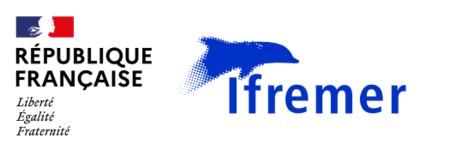Lagoons, Ecosystems and Sustainable Aquaculture in New Caledonia research unit
The Lagoons, Ecosystems and Sustainable Aquaculture in New Caledonia (Lagons, Écosystèmes et Aquaculture Durable de Nouvelle-Calédonie — LEAD) unit develops expertise in aquaculture involving crustaceans, fish, and microalgae and focuses on the coastal environment and its associated biodiversity.
Organisation and focus
The exclusive economic zone (EEZ) of New Caledonia represents roughly 1.5 million km². It is made up of coastal and intertidal environments that cover more than 3400 km² with reef-lagoon complexes and large oceanic stretches. These reef-lagoon complexes are biodiversity hotspots and represent more than 75% of the surface of France’s reefs and lagoons. In parallel, New Caledonia is experiencing high economic growth, due to its nickel industry, with a constant increase in industrial and urban pressures on the coastal and near-shore environments.
Studying, developing and monitoring these environments of exceptional value that are undergoing strong human-induced pressures as part of global change are strategic issues for New Caledonia in addition to training the human resources of tomorrow. The main focus of IFREMER in New Caledonia is the development of natural biological resources and biodiversity (aquaculture, biotechnology) to consolidate and initiate economic sectors, the development and transfer of methodology and tools to foster environmental management of coastal, near-shore and lagoon areas.
The LEAD unit is spread across three sites
- In Noumea, on the IRD campus, near the Pacific Delegation headquarters, for fish-farming, biodiversity, modelling of coastal processes and support services for data management;
- In Noumea, at the aquarium, for microalgal aquaculture (Laboratoire d’Étude des Micro-Algues — LEMA);
- Boulouparis, Experiment Station in Aquaculture at Saint Vincent (Station Expérimentale Aquacole de Saint-Vincent — SASV), managed by the Aquaculture Technique Centre of the Technopole (Centre Technique Aquacole de la Technopole/ADECAL) for shrimp farming.
Research
The research topics at the LEAD unit involve
- New knowledge and technical, biological innovations for sustainable development of marine aquaculture in New Caledonia and sustainable management of resources and biodiversity;
- Study of biological ecological and socio-economic processes to determine the bases of sustainability of existing or innovation aquaculture sectors;
- Study and quantification of the relationships between biodiversity and resources, and use pressure and responses in terms of marine environment management policies.
IFREMER in New Caledonia works in close collaboration with local governments through the signature of framework agreements with the national and local governments and the three provinces (North, South, Loyalty Islands) on priority topics:
- Development of marine biological resources to support the existing aquaculture production sectors and set up new economic sectors;
- Development and transfer of methods and tools to support the environmental management of the coastal and lagoon areas;
- Exploration of marine geological resources and study of deep-sea and semi-deep-sea environments of the EEZ of New Caledonia (topic lead externally but integrated in the LEAD unit due to the IFREMER Delegation involvement in this topic and the high economic and ecological stakes, that can affect the LEAD unit).
